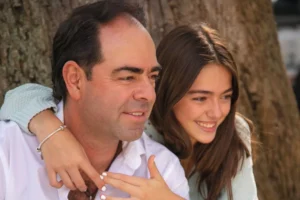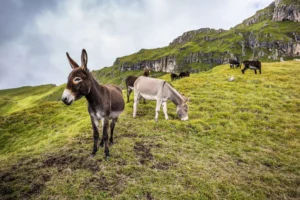I remember hearing it. Many of you are hearing it. And all of us have had to — or will have to — answer it at some point. I’m talking about the question. The one that’s always asked of college seniors and recent grads. It goes something like this, “So, what are you going to do?”
For those of you who know exactly what you’re going to do for a living once you graduate, the question presents an opportunity to brag (I mean shine). Good for you. We’re all real happy for you. But for those of us who don’t have a clue … or who only have a glimpse of a clue or a feeling of a clue or an un-interpreted dream of a clue, this question causes our hands to get clammy and perspiration to bead on our upper lips. Well, at least it did for me.
I had no idea what I was going to do once I graduated. Sure there were times when I knew. At age seven I knew. An archeologist. I was positive that as soon as I got big enough, I would have a very extensive tan-colored wardrobe and dig for bones for the rest of my life. Then in junior high, I wrote a big report on Johnny Carson and was convinced that I should be a comedian. Well, at least that’s what my teachers often said I should be. Looking back, I wonder, was that sarcasm? Well, it doesn’t really matter, since later in high school I vowed to be the best news broadcaster the world (or at least my local channel) has ever seen. I would be cute, funny (though serious when reporting car crashes or zoo animals dying) and decked out in those well-padded suits from the 1980s. It was destiny. I knew it.
So I entered college declaring the academic major that all future Pulitzer-prize winning news broadcasters declare: Communication Studies. Well, at least that’s what riveting broadcasters-to-be majored in at my small college. A few months into my freshman year I realized there were many jobs I could get with that degree. I figured I’d simmer down and explore those other avenues.
The World Is My Oyster
As the months turned into years, I discovered I much preferred studying to exploring. In fact, I felt a certain bliss in the ignorance of my future plans. There was a great big world out there, and because I hadn’t chosen a specific career path, my options felt limitless. I liked that feeling.
Describing his own campus days in his book, The Seven Storey Mountain, author and poet Thomas Merton writes,
I am … willing to admit that some people might live there for years, or even a lifetime, so protected that they never sense the sweet stench of corruption that is all around them — the keen, thin scent of decay that pervades everything and accuses with a terrible accusation the superficial youthfulness, the abounding undergraduate noise, that fills those ancient buildings.
OK. I wasn’t planning on living at my college forever. I actually did want to leave and move on with life. Sure, maybe I was wearing rose-colored glasses, believing it would be easy to land a job without really planning for one. But I liked thinking I could do anything, except of course, be a brain surgeon or hair stylist. I didn’t mind not having it all figured out. That is, until the ubiquitous question reared its anxiety-provoking head.
I remember the first few times I was asked, “So, what are you going to do?” I answered in a somewhat confident mystical tone, “Oh, you know … I’ll check out my options. Really look around. Find the right fit. I’ll do whatever the Lord leads me to do …” But this didn’t satisfy everyone who asked. And toward the end of my senior year, everyone did ask. My parents. Their parents. My roommate’s parents. My professors. The gas station attendant. Even the guy hogging the armrest next to me on an airplane asked what I planned on doing after college. I remember thinking, Why all the interest in my future? These people need to get out more. They seemed more interested in finding out what I was going to do after college than I was. This is when the panic began to set in.
How Do We Define Ourselves?
As I look back, I can’t really blame them. We’re fairly programmed to ask this question. It’s part of our culture. People start asking when we’re just kids. It usually goes something like this, “So, Johnny, what do you want to be when you grow up?” To which the young boy may respond by jumping in place with a horse-toothed grin, squealing, “A garbage man! A garbage man!” And then, of course, his parents would laugh nervously and clarify, “Sure, son, or maybe a doctor? That could be really neat, too.”
And they never stop asking. Even after I landed on a writing career — following my summer as a camp counselor, a year working with homeless people, a rough three-month stint in retail and a couple other odd jobs I’ve blocked out of my memory — people asked, “So, what do you do?” It was usually the very next question after, “What’s your name?” I remember feeling a smidge of pompous relief when I could answer, “I’m a writer,” as opposed to “I’m a car-wash cashier.” But I’m more than my job; that relief soon turned to annoyance.
I decided to start a new trend and stop asking the question. Can you imagine what happened? When I didn’t ask it, people seemed a little uncomfortable. They would fidget, look around the room and finally volunteer the information, as if hearing what they did for a living was the key to helping me understand who they were.
Hey, I’m not suggesting that when we meet a person for the first time we say, “Well, Joe, it’s nice to meet you. Tell me who you really are … perhaps a confident, intelligent, fun-loving guy or would people describe you as impish, sophomoric and tiresome?” And I’m not proposing that on an airplane, after exchanging names and shaking hands with the passenger sitting next to you, you lean in close and ask, “So Ted, what are you hopes, your dreams, your fears?”
Nor am I discounting the real value of discerning your calling. We must earnestly and prayerfully seek God for direction in helping us discover our passion and purpose. I believe this is an ongoing discipline of the Christian life. But our calling goes beyond our careers. We are to “live a life worthy of the calling [we] have received. [To] be completely humble and gentle; be patient, bearing with one another in love” (Ephesians 4:1-2).
Developing a Resume of Character
What would happen if we spent more time asking the question, “Who do you want to be?” than “What do you want to be?” What if we challenged each other to pursue the values we want to possess?
I think we actually have to plan for who we want to be, perhaps even more than for what we want to be. The apostle Paul urges believers in his letter to the Romans, “Do not be conformed to this world but be transformed by the renewing of your mind.” Let’s face it: renewing takes effort. It takes planning. Ask any recent college grad, and they’ll tell you that it’s tempting to conform — to let the world squeeze you into its mold. Well, they’ll tell you if they’re honest anyway. Even Ralph Waldo Emerson quipped, “A little integrity is better than any career.”
The good news is that strong character and a great career aren’t mutually exclusive. In the best cases, they go hand in hand. Both have the potential to honor God. The point is to plan for character that is pleasing to Christ, to seek Him first. Everything else is gravy. Of course, that’s my paraphrasing, but you get the idea. So, let me ask you, “Who do you want to be, or not be?” That is the question.
Copyright 2004 Kara Schwab. All rights reserved.









